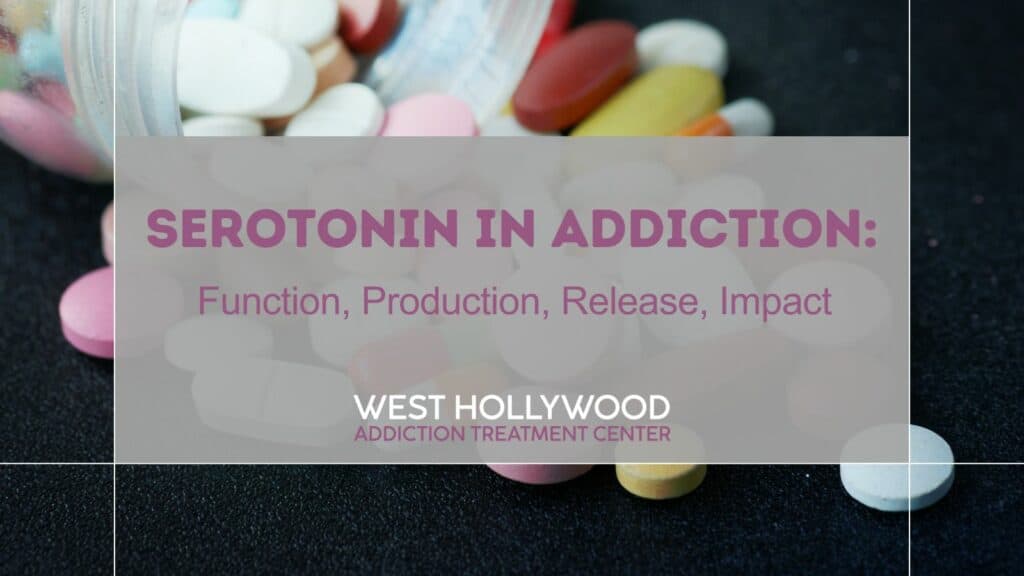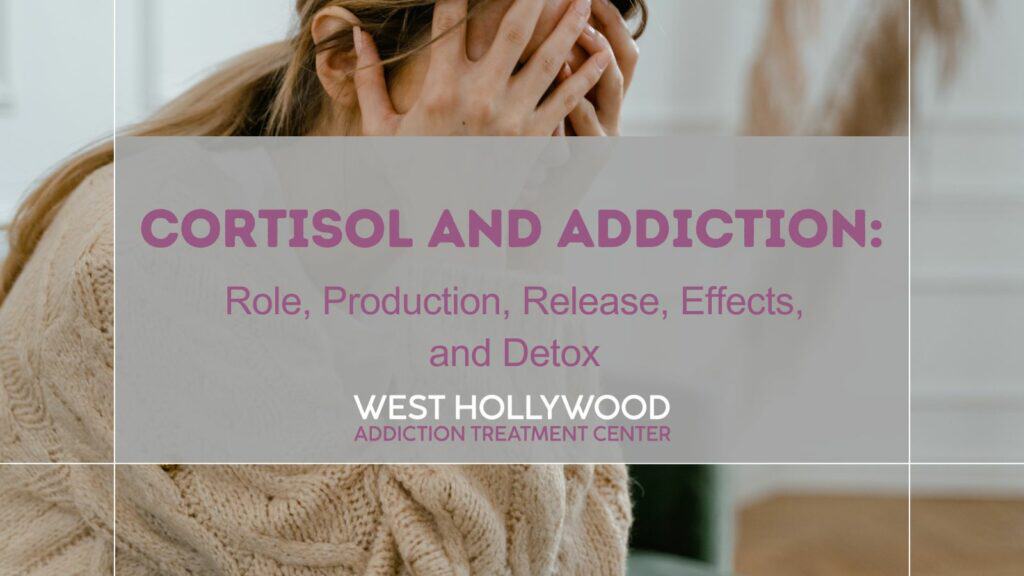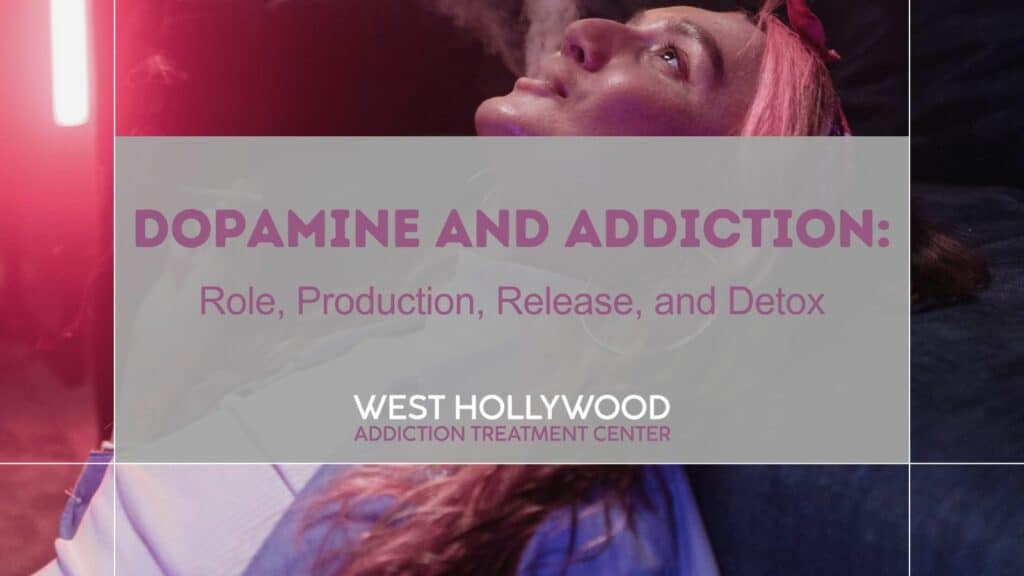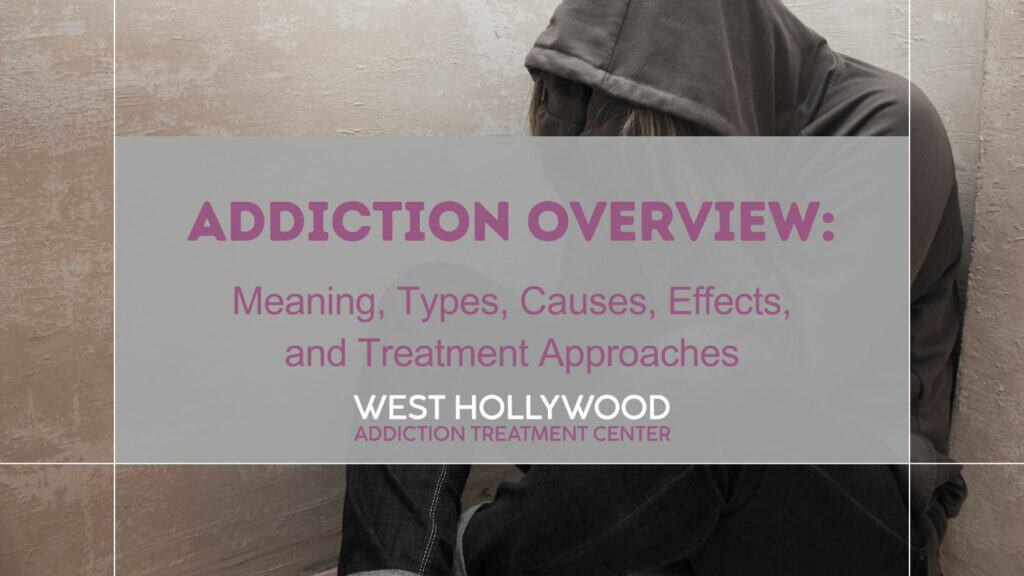Serotonin is a neurotransmitter that carries messages between nerve cells in the brain and throughout the body.
It is also considered a hormone, the “happiness hormone.” Most of the serotonin found in the body is in the gut, and only about 10% is produced in the brain.
Serotonin is made from the essential amino acid tryptophan, which must be obtained from the foods you eat. Low levels of serotonin are associated with many health conditions, including depression, anxiety, mania, and other health conditions.
While serotonin is best known for regulating mood, it also plays a role in addiction and withdrawal. Serotonin is involved in the brain’s reward system, which is why it is challenging to quit an addictive substance
Many medications, including antidepressants, work by increasing serotonin levels in the brain. Natural ways to increase serotonin levels include regular exercise, light therapy, and consuming foods that are high in tryptophan.
The Link Between Serotonin and Addiction
Research conducted by Müller and Homberg (2014) titled The involvement of serotonin in drug use and addiction provides a comprehensive overview of the role of the serotonergic (5-HT) system in the development of drug-related behaviors and the progression of addiction.
The study examines the impact of serotonin on various substances, including cocaine, amphetamine, methamphetamine, MDMA (ecstasy), morphine/heroin, cannabis, alcohol, and nicotine.
Results indicate a significant but distinct involvement of the 5-HT system in both processes, with notable similarities between psychostimulant and opioid drugs as well as alcohol.
A novel functional model proposed in the study suggests specific adaptations in the 5-HT system that coincide with the development of controlled drug use behaviors.
These adaptations make the nervous system more vulnerable to the transition to compulsive drug use and often intersect with genetic predispositions for addiction. In summary, the research suggests a new pathway in which serotonergic neuroadaptations triggered by initial drug exposure pave the way for the onset of addiction.
Basically: This research shows that serotonin, a brain chemical, is crucial in how people develop drug use habits and addiction. It suggests that changes in serotonin levels in the brain make individuals more likely to transition from occasional drug use to compulsive drug use, especially when combined with genetic factors.
Function of Serotonin
Serotonin functions as a neurotransmitter in the brain, transmitting signals between nerve cells and regulating communication within neural circuits. It is primarily synthesized in the raphe nuclei of the brainstem and modulates a wide range of physiological and psychological processes. Serotonin pathways in the brain, such as the mesolimbic pathway, precipitate reward processing, motivation, and reinforcement, making serotonin a key player in addiction-related behaviors.
Production and Release of Serotonin
The production of serotonin begins with the amino acid tryptophan, which is converted into 5-hydroxytryptophan (5-HTP) by the enzyme tryptophan hydroxylase. Subsequently, 5-HTP is converted into serotonin by the enzyme aromatic L-amino acid decarboxylase. Once synthesized, serotonin is stored in synaptic vesicles within nerve terminals and released into the synaptic cleft in response to neuronal activity. Serotonin release is regulated by a complex interplay of presynaptic and postsynaptic receptors, transporters, and regulatory proteins, which control the timing and magnitude of serotonin signaling.
Impact of Serotonin on Addiction
Serotonin exerts a profound influence on addiction-related behaviors through its modulation of reward pathways and stress responses in the brain. Dysregulation of serotonin signaling has been implicated in various addictive disorders, including substance use disorder, gambling disorder, and behavioral addictions. Low levels of serotonin have been associated with increased vulnerability to addiction, while pharmacological interventions that enhance serotonin function have shown promise in reducing addictive behaviors.
In substance use disorder, drugs of abuse such as alcohol, cocaine, and opioids often act on serotonin receptors and transporters, altering serotonin neurotransmission and contributing to addictive behaviors. For example, alcohol increases serotonin release in certain brain regions, leading to feelings of euphoria and relaxation, while chronic alcohol consumption disrupts serotonin function and exacerbates depressive symptoms during withdrawal.
Similarly, stimulant drugs like cocaine and amphetamines increase synaptic levels of serotonin by blocking its reuptake, resulting in enhanced mood, arousal, and reward. Nevertheless, chronic stimulant abuse deplete serotonin stores and impair serotonin receptor function, leading to dysphoria, depression, and cravings.
In addition to its role in substance abuse, serotonin has also been implicated in other addictive behaviors, such as gambling disorder and compulsive eating. Dysfunction of serotonin pathways in the brain’s reward circuitry leads to impaired impulse control, heightened sensitivity to rewards, and compulsive behaviors characteristic of addiction.
Serotonin, a neurotransmitter with vital functions in the brain and body, plays a crucial role not only in regulating mood but also in addiction. Research suggests that alterations in serotonin levels and signaling pathways aggravate the development and maintenance of addictive behaviors, affecting how individuals transition from occasional drug use to compulsive drug-seeking. Understanding the influence of serotonin on addiction provides valuable insights into potential targets for intervention and treatment strategies aimed at tackling addictive disorders and improving outcomes for individuals struggling with addiction.
How Does Serotonin Interact with Cortisol in Addiction?
Serotonin and cortisol, two key neurotransmitters and hormones, interact intricately in addiction. Serotonin regulates mood and emotional states, while cortisol is the body’s primary stress hormone. Dysregulation in the serotonin-cortisol axis can contribute to the development and maintenance of addiction, as chronic stress and elevated cortisol levels may impact serotonin function and exacerbate addictive behaviors.
FAQs
Are there medications that target serotonin for addiction treatment?
Yes, some medications that target serotonin receptors or regulate serotonin levels in the brain have shown promise in reducing addictive behaviors and cravings. These medications may be used as part of a comprehensive treatment approach for substance use disorder, alongside behavioral therapy and other interventions.
Do serotonin-targeted therapies help prevent relapse in addiction recovery?
Serotonin-targeted therapies, such as medications that regulate serotonin levels or function, help prevent relapse by reducing cravings, stabilizing mood, and ameliorating emotional regulation during addiction recovery. These therapies are used as part of a comprehensive relapse prevention plan alongside behavioral interventions and support networks.
Do serotonin levels affect withdrawal symptoms during addiction recovery?
Yes, serotonin levels affect withdrawal symptoms experienced during addiction recovery. Dysregulation of serotonin signaling contributes to mood disturbances, anxiety, depression, and cravings for substances during the withdrawal process. Handling serotonin imbalances may help alleviate some withdrawal symptoms and support successful recovery.

Share This Post



